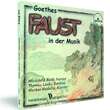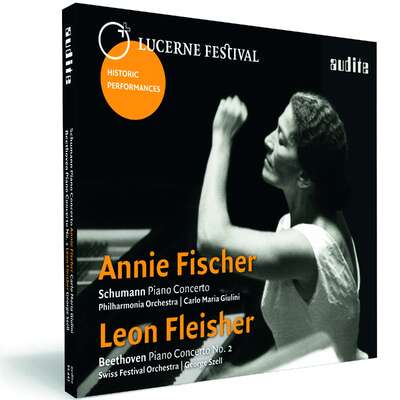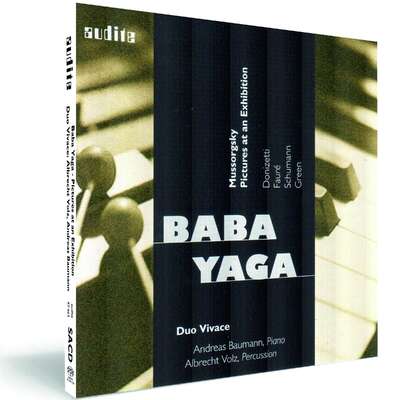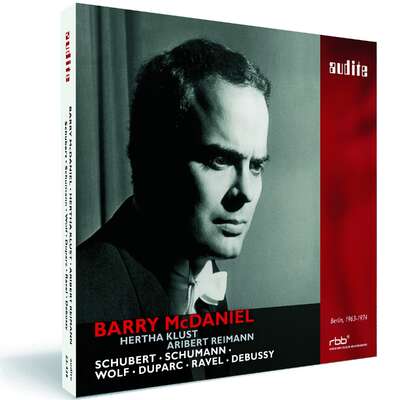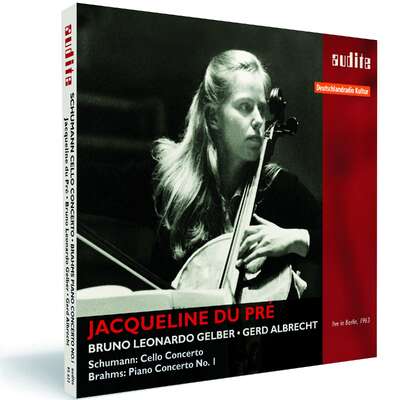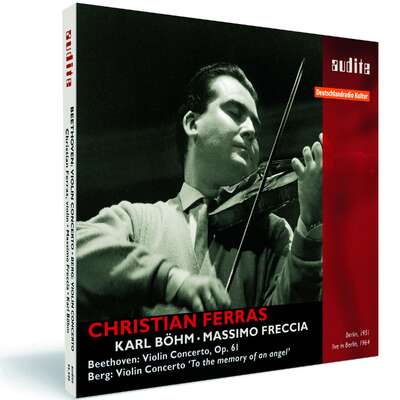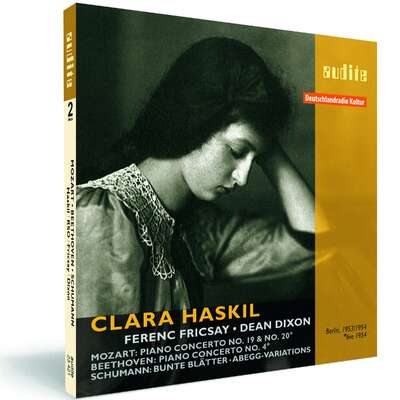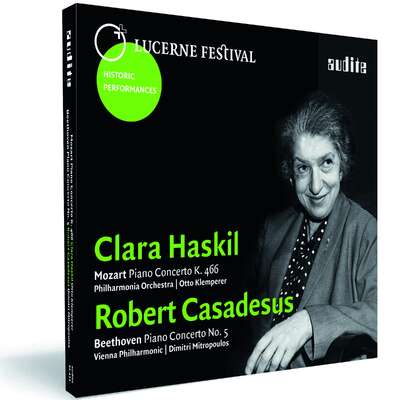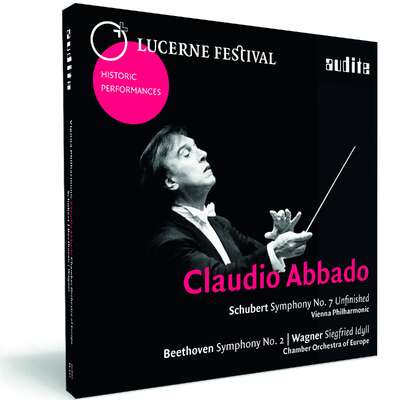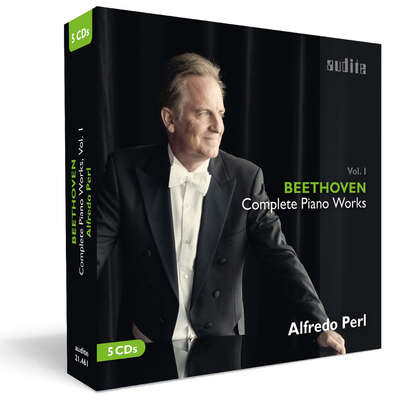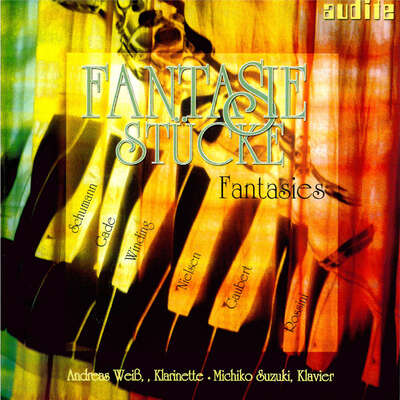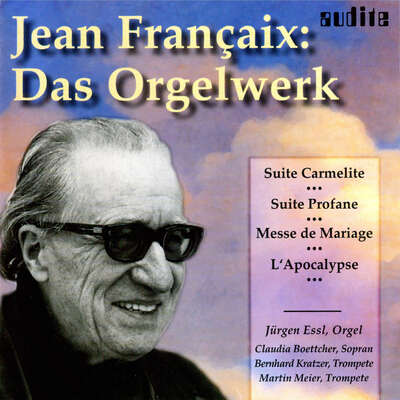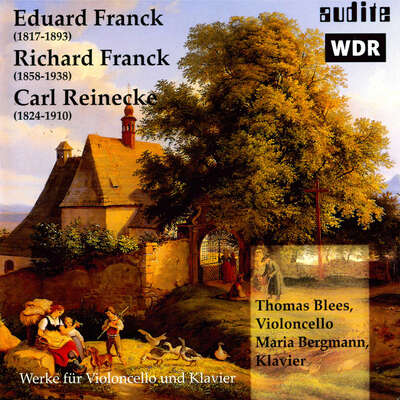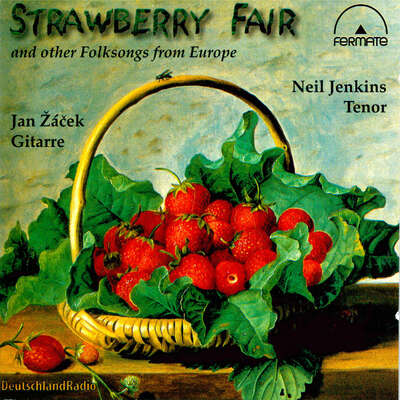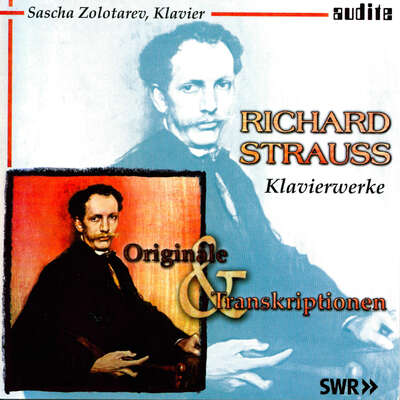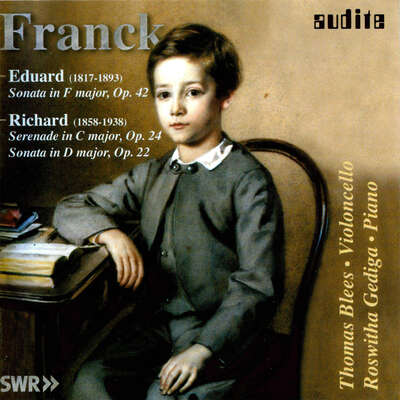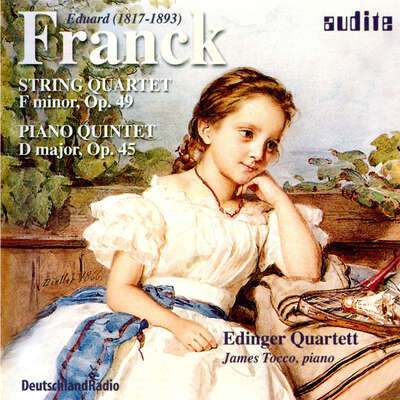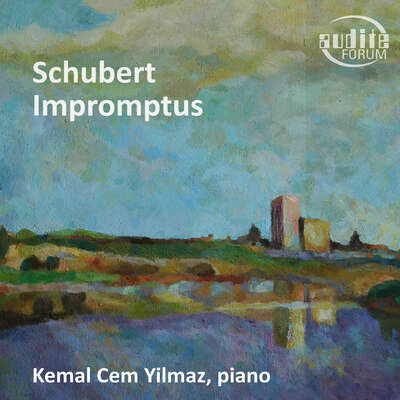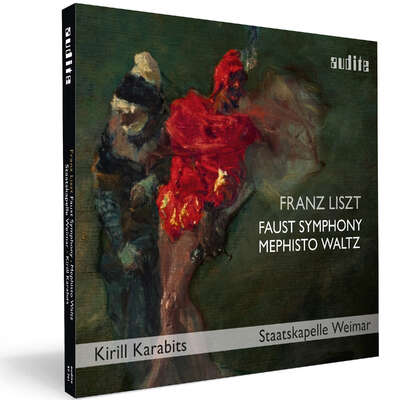
Ludwig van Beethoven | Franz Schubert | Richard Wagner | Fanny Hensel | Robert Schumann | Ferruccio Busoni | Franz Liszt
"Vor allem Thomas Laskes charakterister Bariton ist nicht nur stimmlich höchst präsent. Der Heidelberger Madrigalchor bietet homogenen, intonationssicheren Wohllaut..., Markus Hadulla bietet ein beeindruckendes Niveau in solch verschiedenen musikalischen Stilen." (Klassik heute)
Details
| Goethes 'Faust' set to Music | |
| Artikelnummer: | 20.030 |
|---|---|
| EAN-Code: | 4022143200303 |
| Preisgruppe: | BCH |
| Veröffentlichungsdatum: | 1. Januar 1999 |
| Spielzeit: | 67 min. |
Besprechungen
Pizzicato | 11/2002 | Steff | 1. November 2002 INTERESSANTES ZUM THEMA FAUST
Die 'Faust'-Lieder von Beethoven, Schubert, Wagner, Fanny Hensel, Schumann, Busoni und Liszt bilden in dieser Zusammenstellung ein recht interessantesMehr lesen
Die 'Faust'-Lieder von Beethoven, Schubert, Wagner, Fanny Hensel, Schumann, Busoni und Liszt bilden in dieser Zusammenstellung ein recht interessantes Programm, das ebenso abwechslungsreich ist wie auch einer inneren Logik folgt. Hier kann man z.B. vier verschiedene Versionen des 'Flohliedes' miteinander vergleichen. Und Wagners mit siebzehn Jahren komponierte Sieben Kompositionen zu Goethes 'Faust' sind schon eine echte Rarität. Gesungen wird recht gut, wobei mir der Bariton weit besser gefällt als die Sopranistin. Zudem lassen der überzeugende Chorgesang und die adäquate Klavierbegleitung diese Provinzproduktion in recht gutem Licht erscheinen.
Die 'Faust'-Lieder von Beethoven, Schubert, Wagner, Fanny Hensel, Schumann, Busoni und Liszt bilden in dieser Zusammenstellung ein recht interessantes
American Record Guide | 4/2000 | Boyer | 1. Juli 2000
Goethe strikes again! One of the most oft-used themes in programming recordings of lieder--using poems by Wolfgang von Goethe--makes two appearancesMehr lesen
Goethe strikes again! One of the most oft-used themes in programming recordings of lieder--using poems by Wolfgang von Goethe--makes two appearances in this issue. The Berlin disc is the more conventional of the two, filled primarily with selections from Schumann\'s Lieder aus Wilhelm Meister, sung by Arleen Auger, and a mixed collection of lieder by Schubert and Beethoven, sung by Peter Schreier. Then there are three choral songs by Mendelssohn, performed by the Leipzig Radio Choir under the direction of Horst Neumann. All the selections have been previously released. Schreier\'s contributions were recorded in 1970, Auger\'s in 1977, and the chorus\'s in 1972 and 1978. It\'s all familiar repertory sung by well known artists in their prime. Suffice it to say that everything sounds beautiful. Schreier is in top form, especially in the Beethoven. Auger\'s voice, like a good violin, just got better and mellower with age. Lovely as she sounds here, when she was already 38, her bright, still youthful voice doesn\'t match the velvety smoothness of her later years. Compare this with the perfection of her Telarc recording of Strauss\'s Four Last Songs, made at age 49, just five years before she died. But even absent her later smoothness, she still sounds terrific. Mr Neumann and his choir perform the three Mendelssohn choral songs with superb polish. Excellent sound, brief notes and texts, but no translations, per Berlin\'s usual practice.
The programming on the Fermate recording is a bit more adventurous, focussing not just on Goethe, but on Faust in particular. Wagner\'s early (1831!) Sieben Kompositionen zu Goethes Faust is an interesting curiosity, but gives little hint as to the composer Wagner would eventually become. Included in the settings are his own treatment of \'Gretchen am Spinnrade\'-- certainly not the equal of Schubert\'s but a worthy effort nonetheless--and a curious little melodrama of just under four minutes, \'Ach Neige, du Schmerzenreiche\'. The Busoni and Hensel pieces are also unfamiliar, and while attractive in their own right, not especially memorable. Most ambitious is Liszt\'s Chor der Engel aus Faust II (1849), for mixed chorus and harp (or piano). Listening to the piano part played here, it is difficult to imagine the harp even attempting anything similar, as the piano part itself sounds like an orchestral reduction. I\'ve not seen the score--perhaps the harp and piano parts are conceived quite differently--but the implie d reduction from more powerful forces strikes at the problem here: the performers are not of the top tier.
Just as the piano in the Liszt chorus suggests the need for orchestral treatment, so the Heidelberg Madrigal Choir fails to fulfill the needs of this and the other choral selections. Although described as a chorus of nearly 50 adults, they sound for all the world like a college glee club of about 16 voices, with that peculiarly raw sound that collegiate choruses so often have. The Leipzig Radio Choir outclasses them in every respect. Baritone Thomas Laske and soprano Mechthild Bach, while satisfactory, are simply not in the same class as Peter Schreier and Arleen Auger.
The Fermate booklet is well organized, inviting easy comparison of settings of the same text (\'Es War Einmal em Konig\' appears four times in settings by Beethoven, Wagner, Busoni, and Liszt, for example), but in the end the listener will be far better served by the excellent performances on the Berlin disc, not to mention the lower price.
The programming on the Fermate recording is a bit more adventurous, focussing not just on Goethe, but on Faust in particular. Wagner\'s early (1831!) Sieben Kompositionen zu Goethes Faust is an interesting curiosity, but gives little hint as to the composer Wagner would eventually become. Included in the settings are his own treatment of \'Gretchen am Spinnrade\'-- certainly not the equal of Schubert\'s but a worthy effort nonetheless--and a curious little melodrama of just under four minutes, \'Ach Neige, du Schmerzenreiche\'. The Busoni and Hensel pieces are also unfamiliar, and while attractive in their own right, not especially memorable. Most ambitious is Liszt\'s Chor der Engel aus Faust II (1849), for mixed chorus and harp (or piano). Listening to the piano part played here, it is difficult to imagine the harp even attempting anything similar, as the piano part itself sounds like an orchestral reduction. I\'ve not seen the score--perhaps the harp and piano parts are conceived quite differently--but the implie d reduction from more powerful forces strikes at the problem here: the performers are not of the top tier.
Just as the piano in the Liszt chorus suggests the need for orchestral treatment, so the Heidelberg Madrigal Choir fails to fulfill the needs of this and the other choral selections. Although described as a chorus of nearly 50 adults, they sound for all the world like a college glee club of about 16 voices, with that peculiarly raw sound that collegiate choruses so often have. The Leipzig Radio Choir outclasses them in every respect. Baritone Thomas Laske and soprano Mechthild Bach, while satisfactory, are simply not in the same class as Peter Schreier and Arleen Auger.
The Fermate booklet is well organized, inviting easy comparison of settings of the same text (\'Es War Einmal em Konig\' appears four times in settings by Beethoven, Wagner, Busoni, and Liszt, for example), but in the end the listener will be far better served by the excellent performances on the Berlin disc, not to mention the lower price.
Goethe strikes again! One of the most oft-used themes in programming recordings of lieder--using poems by Wolfgang von Goethe--makes two appearances
